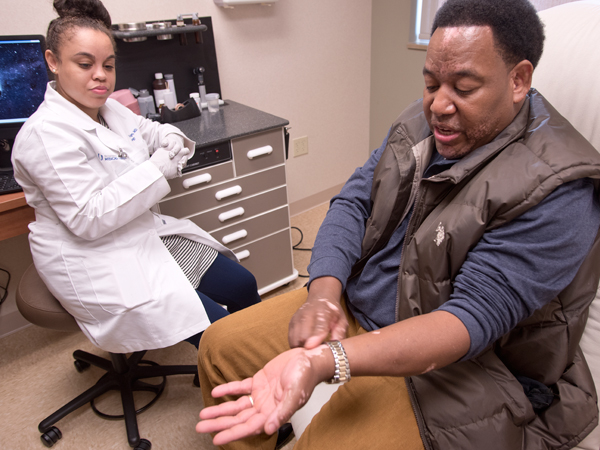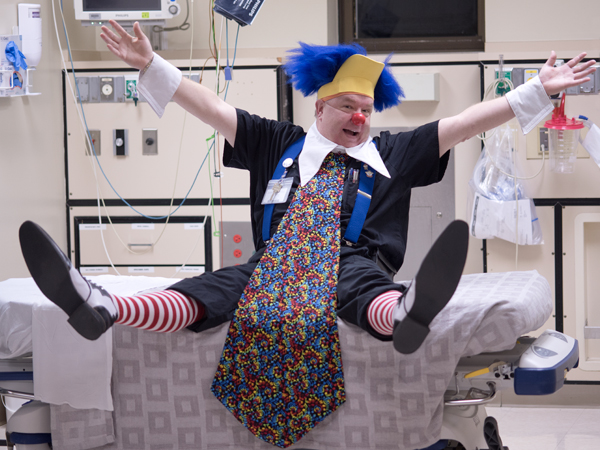|
Barron Kaho of Fayette has a disease that's etched on his face and hands, a condition that has drained the color from his skin in patches. He considers himself lucky. For one thing, the disease - called vitiligo - isn't fatal. “Like I say,” he said, “it's better to be on top of the earth than under it.” For another, the mottling began to spread about the time a new doctor came to town: UMMC dermatologist Dr. Jasmine Hollinger; her primary area of interest: vitiligo. “She's the problem solver,” said Kaho, 45, who was referred to Hollinger by his family physician. Under Hollinger's care, including treatments with topical steroids, Kaho has seen a 20 percent improvement in his condition, a disease that can bring ridicule from the usual cruel suspects of any race, color or creed. “Vitiligo is not limited to any ethnic group,” said Hollinger, who earned her M.D. at the Medical Center before completing a dermatology residency at Washington D.C.'s Howard University in June. “But it may be more stigmatizing for African Americans and others with darker skin types.” The possibility of stigmatization apparently haunted the late pop star Michael Jackson, whose purported case of vitiligo prompted him to depigment, or bleach, all of his skin. “I don't want to look like no Michael Jackson,” Kaho said.
|
























